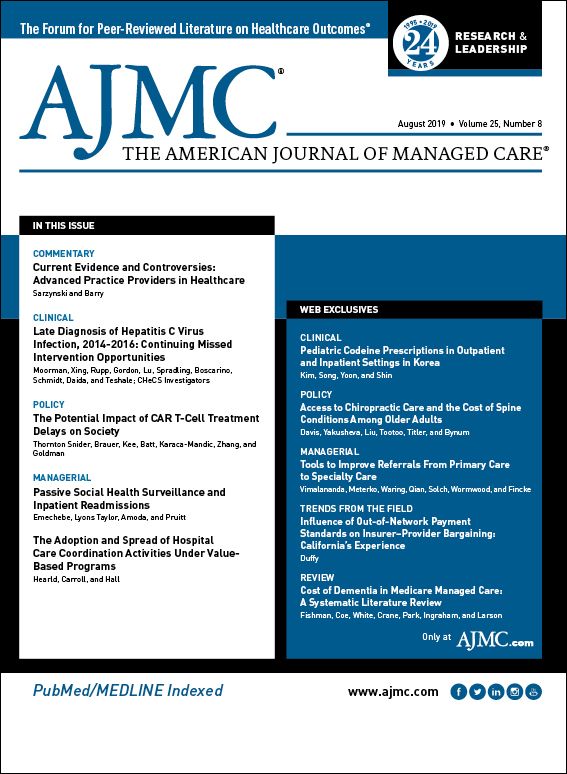- Center on Health Equity & Access
- Clinical
- Health Care Cost
- Health Care Delivery
- Insurance
- Policy
- Technology
- Value-Based Care
From the Editorial Board: Elizabeth Mitchell
We all recognize the problem of high costs in healthcare, which put a serious burden on all Americans and US employers that provide benefits to their employees and families. The good news is that there is now a rare window of opportunity to meaningfully address this problem through bipartisan Congressional action. There is an urgent need for all of us to engage in these policy debates before the window closes during the upcoming election season.
Many of us believe that healthy competition and market forces can and should spur efficiency, appropriate care, high quality, and better patient experience. But there is growing recognition that our healthcare system has serious problems—including the effects of market consolidation and anticompetitive practices on prices. We know that market power has enabled providers, drug companies, pharmacy benefit managers, and others to raise prices. We also know that market concentration has been growing in recent years. Most hospital markets are already highly concentrated, and hospitals have also been buying up physician practices, limiting purchasers’ ability to fairly negotiate on behalf of patients. In other words, many parts of the healthcare market are fundamentally broken, and policy intervention is required.
Surprise billing is a painful symptom of a dysfunctional and unaffordable healthcare system. This nightmare is all too familiar: Unsuspecting and vulnerable patients are grateful for care but saddled with expensive and unexpected bills, even though they received care at a hospital designated as “in network.” In fact, unexpected medical bills are the number 1 concern among Americans, according to a Kaiser Family Foundation poll (Figure 7).1 More than 67% of Americans said that they were very or somewhat worried about being able to afford a medical bill they received due to no fault of their own. This is a clear example of a market failure. In the specific case of surprise bills, policy makers must take steps to protect consumers and hold down the overall costs of care.
One of the promising solutions to this problem has been endorsed by the Senate Committee on Health, Education, Labor, and Pensions: a fair benchmark payment derived from existing market prices to avoid price gouging by a small number of providers. As an article in this issue of The American Journal of Managed Care® shows, California’s experience implementing a policy to address surprise medical billing demonstrates that out-of-network payment standards can influence payer—provider bargaining leverage, impacting prices and network breadth. Furthermore, an analysis by Blue Shield of California has shown that the overall number of physicians under contract has increased since the implementation of the law, and the contracted rates for ancillary providers who frequently balance-billed also continued to increase after the law went into effect.
Patients may not care whether Congress uses arbitration or benchmarking in its legislation to eliminate surprise medical bills, but they do care about access to affordable, high-quality healthcare for themselves and their families. Implementation of these and other policies will take time and require significant changes by important stakeholders. Yet the vitality of our economy, the solvency of our nation’s treasury, and the welfare of all Americans depend upon our efforts.
Reference
1. Kirzinger A, Wu B, Muñana C, Brodie M. Kaiser Health Tracking Poll—late summer 2018: the election, pre-existing conditions, and surprises on medical bills. Kaiser Family Foundation website. kff.org/health-costs/poll-finding/kaiser-health-tracking-poll-late-summer-2018-the-election-pre-existing-conditions-and-surprises-on-medical-bills. Published September 5, 2018. Accessed August 4, 2019.

Specialty and Operator Status Influence Electronic Health Record Use Variation
January 22nd 2026Operators demonstrated specialty-specific differences in electronic health record efficiency, timeliness, and after-hours use, highlighting how workflow and training shape documentation behaviors across medical disciplines.
Read More
Empowering Children and Parents Through Technology: Opportunities, Challenges, and Future Directions
January 15th 2026Digital health platforms improve pediatric care by offering customized, interactive tools for children and parents. They enhance education, support, and engagement while tackling challenges related to access, usability, and privacy.
Read More
Insights Into Patient Portal Engagement Leveraging Observational Electronic Health Data
January 12th 2026This analysis of more than 250,000 adults at least 50 years old with chronic conditions showed lower portal use among older, non–English-speaking, and Black patients, underscoring digital health equity gaps.
Read More
Subjective and Objective Impacts of Ambulatory AI Scribes
January 8th 2026Although the vast majority of physicians using an artificial intelligence (AI) scribe perceived a reduction in documentation time, those with the most actual time savings had higher relative baseline levels of documentation time.
Read More
Telehealth Intervention by Pharmacists Collaboratively Enhances Hypertension Management and Outcomes
January 7th 2026Patient interaction and enhanced support with clinical pharmacists significantly improved pass rates for a measure of controlling blood pressure compared with usual care.
Read More

